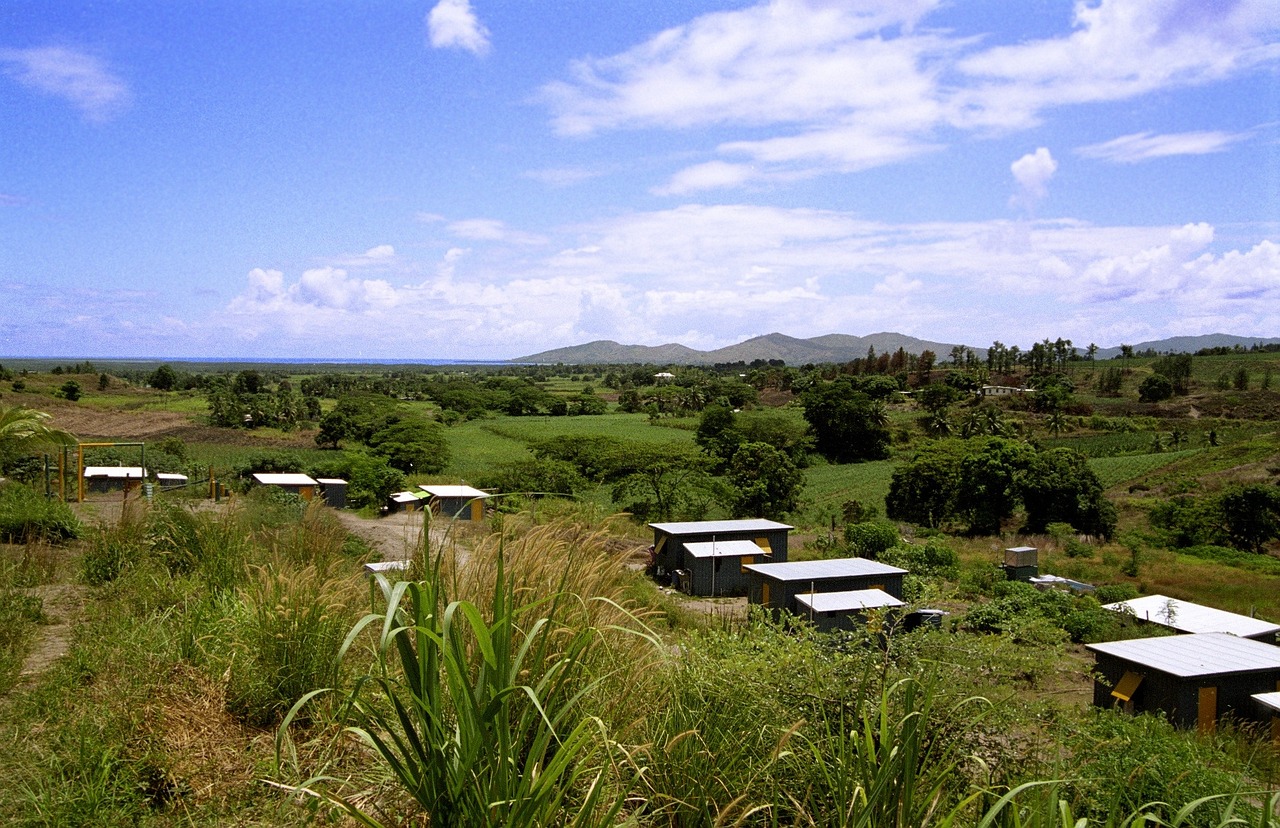Fiji Video:
Language and Communication: Overcoming Barriers in Fiji
Language and communication play a vital role in connecting individuals and fostering understanding. In Fiji, a beautiful island nation in the South Pacific, language diversity and communication barriers can pose challenges. This article explores how Fijians overcome these barriers and promote effective communication in various aspects of their lives.
Section 1: Language Diversity in Fiji
Fiji is known for its rich cultural diversity, which is reflected in the multitude of languages spoken across the islands. The official languages are Fijian and English, but there are also significant populations of speakers of Hindi, Urdu, and various indigenous languages. This linguistic diversity creates a unique environment where individuals must navigate different languages to communicate effectively.
- Fijian: Fijian is the most widely spoken indigenous language in Fiji. It has several dialects, including Bauan, Nadroga, and Rewan, among others.
- English: English is taught in schools and serves as the language of government, education, and business. It is widely understood, particularly in urban areas.
- Hindi and Urdu: Fiji has a significant Indo-Fijian population, and Hindi and Urdu are spoken by many members of this community. These languages are often used in religious and cultural contexts.
- Other Indigenous Languages: Various indigenous languages, such as Rotuman and Banaban, are spoken by smaller communities in Fiji.
Section 2: Multilingualism as a Cultural Strength
The multilingual nature of Fiji’s society is considered a cultural strength. It allows individuals to connect with people from different backgrounds and fosters a sense of inclusivity. Multilingualism enables Fijians to embrace diversity and appreciate the richness of their cultural heritage.
- Cultural Exchange: Language diversity encourages cultural exchange, as individuals have the opportunity to learn about different customs, traditions, and perspectives through language interactions.
- Respect for Indigenous Languages: Multilingualism promotes the preservation and revitalization of indigenous languages, ensuring their continued existence for future generations.
- Tourism: Fiji’s language diversity enhances the tourism industry, as visitors can engage with locals in their native languages, creating a more immersive and authentic experience.
- Global Connections: With English as a widely spoken language, Fiji can connect with the global community and participate in international exchanges and collaborations.
Section 3: Communication Challenges and Solutions
While language diversity brings richness to Fiji, it also presents communication challenges. However, Fijians have developed various strategies to overcome these barriers and ensure effective communication.
Fiji Image 1:

- Translation and Interpretation Services: Professional translators and interpreters play a crucial role in facilitating communication between individuals who speak different languages. They provide linguistic support in various settings, such as healthcare, legal proceedings, and business negotiations.
- Bilingual Education: Schools in Fiji offer bilingual education programs, where students learn in both Fijian and English. This approach promotes language proficiency in multiple languages and fosters cross-cultural understanding.
- Language Exchange Programs: Language exchange programs bring together individuals from different language backgrounds, allowing them to practice and improve their language skills through mutual learning.
- Non-Verbal Communication: Non-verbal cues, such as body language, facial expressions, and gestures, often play a significant role in communication, especially when verbal language barriers exist.
Section 4: Language and Business
In the business context, effective communication is essential for building successful relationships and facilitating transactions. Fijians have developed strategies to overcome language barriers in the business environment.
- Translation Services: Professional translation services are sought after by businesses to ensure accurate communication with international partners and clients.
- Language Training: Companies invest in language training programs to equip their employees with language skills necessary for effective communication in the global marketplace.
- Cultural Sensitivity: Understanding cultural norms and customs is crucial in business communication. Fijians value cultural sensitivity and adapt their communication styles accordingly.
- Interpreters: In meetings or negotiations involving multiple language speakers, professional interpreters are often employed to facilitate smooth communication and avoid misunderstandings.
Section 5: Language and Education
Language plays a vital role in education, and Fiji recognizes the importance of effective communication in the learning process. Various initiatives have been implemented to address language barriers in education.
- Bilingual Education: Bilingual education programs allow students to learn in their native language while gradually acquiring proficiency in other languages.
- Language Support Programs: Schools provide language support programs to assist students who are non-native speakers of the language of instruction, ensuring they can fully participate in the educational experience.
- Teacher Training: Professional development programs for teachers focus on equipping them with the skills to support students with diverse language backgrounds.
- Technology: Educational technology, such as language learning apps and online resources, can supplement classroom instruction and provide additional language support.
Section 6: Language and Healthcare
In the healthcare sector, effective communication is vital for accurate diagnosis and treatment. Fiji has implemented strategies to address language barriers and ensure quality healthcare for all.
Fiji Image 2:

- Medical Interpreters: Trained medical interpreters assist healthcare professionals in communicating with patients who have limited proficiency in the language of healthcare providers.
- Cultural Competence Training: Healthcare professionals receive training to develop cultural competence, enabling them to understand and respect patients’ cultural backgrounds and communication styles.
- Translated Materials: Hospitals and clinics provide translated materials, such as brochures and signage, to ensure patients can access essential healthcare information in their preferred language.
- Language Access Policies: Healthcare institutions establish language access policies to guarantee that language services are available to patients who require them.
Section 7: Language and Tourism
Tourism is a significant industry in Fiji, and effective communication is crucial for providing exceptional experiences to visitors from around the world. Fijians understand the importance of language in the tourism sector.
- Tourism Language Training: Tourism professionals undergo language training programs to enhance their ability to communicate with tourists in their native languages.
- Language Guidebooks: Guidebooks and phrasebooks are available to tourists, providing them with basic phrases and expressions in Fijian and other commonly spoken languages.
- Multilingual Staff: Hotels, resorts, and tourist attractions employ multilingual staff members to cater to the diverse language needs of their guests.
- Language Apps and Translation Services: Technology, such as language translation apps, assists tourists in overcoming language barriers and navigating their way around Fiji.
Section 8: Language and Social Integration
Effective communication is essential for social integration and fostering strong community ties. In Fiji, language plays a significant role in bringing people together.
- Language Exchange Groups: Language exchange groups provide a platform for individuals to practice different languages and build friendships across language barriers.
- Multicultural Events: Fiji hosts various multicultural events where people from different language backgrounds come together to celebrate their diversity through music, dance, and food.
- Community Language Programs: Community-based language programs offer opportunities for individuals to learn and maintain their native languages, preserving cultural heritage.
- Interfaith Dialogue: Interfaith dialogue initiatives promote understanding and harmony among different religious communities through effective communication.
Section 9: Language Preservation Efforts
Fiji recognizes the importance of preserving indigenous languages and has taken steps to ensure their survival for future generations.
Fiji Image 3:

- Language Documentation: Linguists and researchers work closely with indigenous communities to document and study their languages, preserving their linguistic heritage.
- Language Revitalization Programs: Language revitalization initiatives focus on teaching indigenous languages to younger generations through schools, community programs, and cultural events.
- Elders as Language Keepers: Elders within indigenous communities play a crucial role in passing down language knowledge and cultural traditions to younger members.
- Community Language Centers: Community language centers serve as hubs for language learning and cultural activities, providing resources and support for language preservation efforts.
Section 10: Conclusion
Language and communication are essential elements of everyday life in Fiji. Despite the challenges presented by language diversity, Fijians have implemented various strategies to overcome communication barriers and promote understanding. The multilingual nature of Fiji’s society is celebrated for its cultural richness and its ability to connect people from different backgrounds. Through language preservation efforts and inclusive communication practices, Fiji continues to foster a society where language is a tool for unity and cultural appreciation.
References
- Fiji Bureau of Statistics: www.statsfiji.gov.fj
- Fiji Ministry of Education, Heritage, and Arts: www.education.gov.fj
- Fiji Ministry of Health and Medical Services: www.health.gov.fj
- Fiji Tourism: www.fiji.travel


